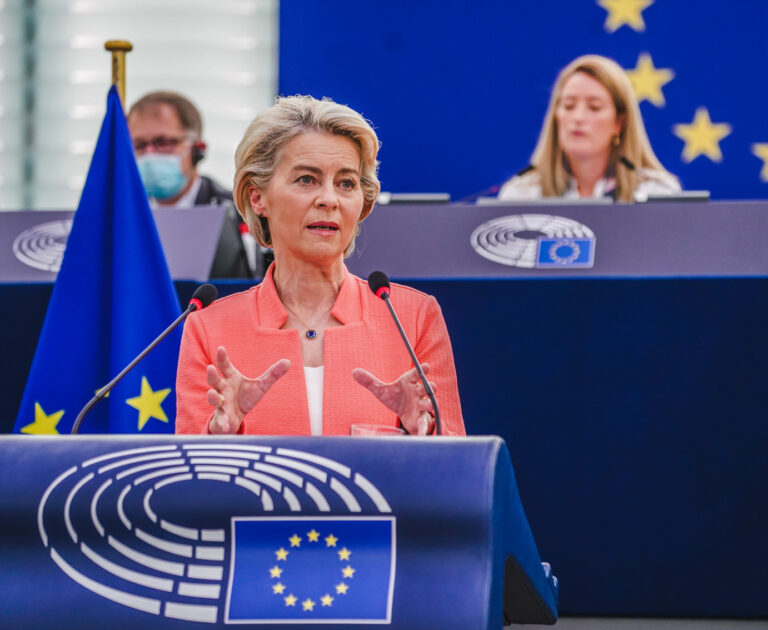EU proposal to the World Trade Organization
- Founded
- Communicated in June 2021.
- Governance
- European Commission
- Funding
- Not applicable.
- Description
The EU proposes that members of the World Trade Organization (WTO) agree on a global trade initiative for equitable access to Covid-19 vaccines and therapeutics, entailing three components: 1) a limitation on export bans (vaccines, treatments and their components should cross borders without interruptions), 2) expansion of the production (producers should be encouraged to do so), and 3) the option to issue a compulsory license when voluntary cooperation of right holding companies fails – a legitimate tool stipulated in the Agreement on Trade-Related Aspects of Intellectual Property Rights (TRIPS) since 1995.
The EU proposal ‘clarifies’ TRIPS articles 31 and 31bis. First, the EU proposes that WTO member states agree to recognize the Covid-19 pandemic a circumstance of national emergency so that one of the requirements (to negotiate with the right holder unless there is a national emergency) for granting a compulsory license is fulfilled. Over 100 countries have done this already. The EU also stresses the importance of remuneration supporting affordable prices. TRIPS does include provisions on adequate remuneration and leaves the interpretation partly up to member states themselves.
Lastly, the EU proposes that exporting WTO member states are allowed to provide in one single notification a list of multiple countries to which they intend to export vaccines and therapeutics, both in case they plan to supply them directly or via COVAX. This is meant to work around procedural aspects, but in fact TRIPS does not have any restrictions on the number of countries that can be listed in single notifications.
This initiative can be considered a counterproposal to the TRIPS Waiver proposal by India and South Africa, that calls for temporarily lifting of certain intellectual property rights on medical products against Covid-19. The EU is considerably reserved on intervening in the protection of intellectual property on vaccines and therapeutics. The EU claims that rather than intellectual property, (lack of) manufacturing capacity forms the obstacle in increasing access to these medical products – denying their interplay.

Strengths
- Proposes a limitation of export barriers and to keep supply chains uninterrupted to accelerate production and delivery of vaccines and therapeutics.
- Underlines the urgent need for expansion of production of vaccines and therapeutics.
- Calls on the WTO to cooperate with international organisations, such as the World Health Organization (WHO) and World Intellectual Property Organization (WIPO), to compile information on the production of vaccines and therapeutics and producer’s pledges, and organise regular meetings with all relevant stakeholders to work on concrete solutions, whenever necessary.
Weaknesses
- Not in line with resolutions adopted by the European Parliament, that calls on the EU to support the TRIPS Waiver as proposed by India and South Africa.
- Has no actual or new substance, as it essentially accentuates existing (legal) opportunities stipulated in for example TRIPS and national legislations.
- Is limited to lifting protection of patents, and does not involve transfer of other protected data, know-how and technology needed for production.
- Brings diversion and delay in the negotiating process on the TRIPS Waiver proposal of India and South Africa, which is already supported by 105 countries.
- Does not mention access to other products than vaccines and therapeutics important in battling the pandemic, such as diagnostics, medical devices, personal protective equipment, their materials or components and their methods.
Review
The EU’s proposal as communicated to the WTO does not entail new provisions nor novel ideas. It reiterates self-explanatory problems and restates the obvious; opportunities national governments already possess and can employ, largely up to their discretion. Essentially, it has no added value.
That is why some experts argue that the proposal only means to delay and distract the international discussion on the TRIPS Waiver as proposed by India and South Africa. 105 countries support this much more encompassing proposal. Various EU countries, including Germany, are opposed to the TRIPS Waiver. These countries seem to prioritise the interests of pharmaceutical companies, for economic reasons and/or because access to medical products is a relatively minor problem there.
The EU’s communication to the WTO does not accommodate solutions to challenges experienced by governments of lower-income countries. Slowing down the TRIPS Waiver proposal that does address actual experienced obstacles in the access to medical products, is therefore indecent.
Lastly, the EU strongly relies on voluntary measures private companies can undertake to expand the production capacity. Voluntary measures have benefits if companies indeed collaborate and share their intellectual property and know-how with manufacturers in low- and middle-income countries. However, now that we witness how the pandemic is raging on for over two years, with no sufficient voluntary efforts from pharmaceutical firms to ramp-up production, it is time for the EU to consider involuntary means for production expansion too.